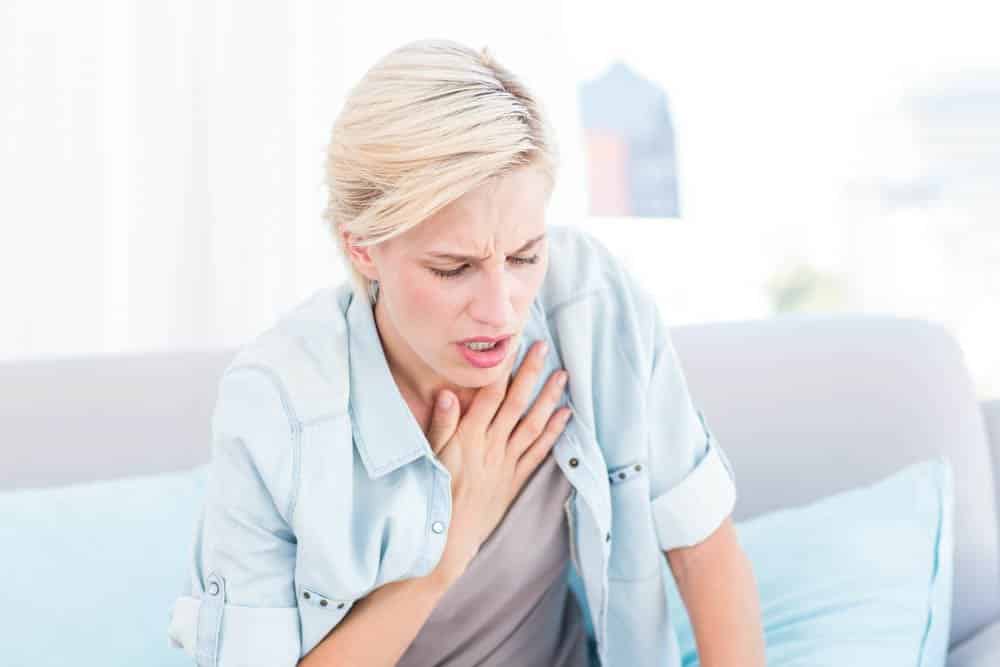Shortness of breath

The brain regulates the breathing process. During breathing, the level of carbon dioxide and oxygen in the hemoglobin changes, and the body becomes replenished of oxygen. However, in cases of angina, there is an increase in carbon dioxide in the blood. The brain sends signals to the body to increase the rate of breathing, which may result in faster or deeper breaths.
That’s why people experiencing angina usually feel out of breath after certain types of physical effort, such as having rigorous exercise or walking at a fast pace. How quickly chest pain and shortness of breath develops widely depends on each patient and the severity of their disease.
